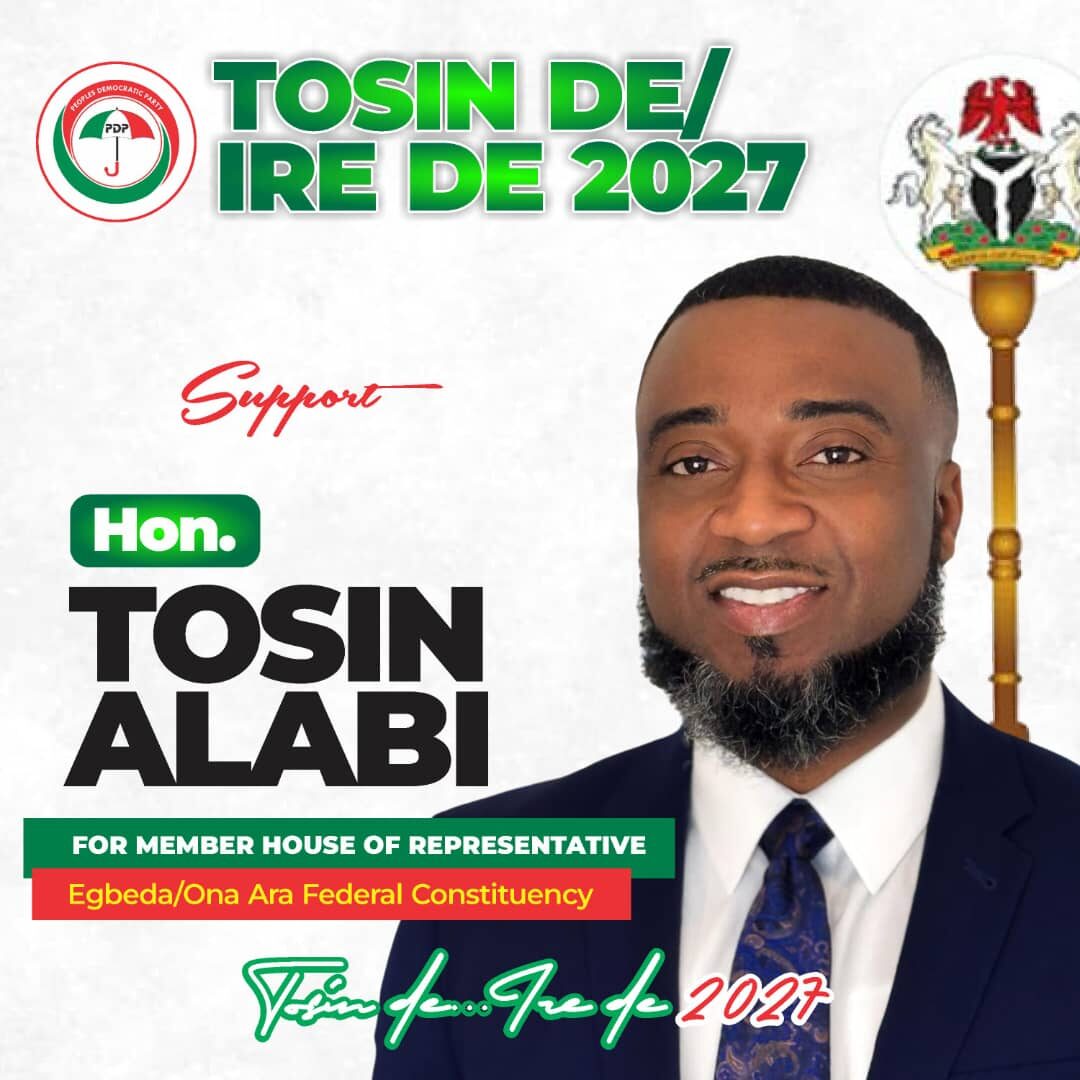A recent survey conducted by an independent, non-profit, and non-partisan opinion research think-tank known as Africa Polling Institute (API) showed that between 79% to 83% of Nigerians expressed little or no trust in the President Bola Ahmed Tinubu-led Executive, National Assembly, and the Judicial arms of government.
The report, launched at a national dialogue in Abuja on Thursday, also computed the Nigeria Social Cohesion Index (NSCI) as 46.8%. This index is below the average score of 50 percentage points and indicates a weak state of social cohesion in Nigeria.
According to a statement issued by API’s Executive Director, Professor Bell Ihua, and made available to Nigerian Tribune, “the survey findings report growing citizens’ distrust and low public confidence in the government and public institutions.
“Specifically, 83% of Nigerians expressed little to no trust in the government of President Bola Ahmed Tinubu; and 82% expressed the same sentiments towards the National Assembly under the leadership of Senate President, Dr Godswill Akpabio, and House of Representatives Speaker, Rt Hon Tajudeen Abass.
“Also, 79% said they have little to no trust in the judiciary, under the leadership of the erstwhile CJN, Justice Kayode Ariwoola, and the current one, Justice Kudirat Kekere-Ekun. In comparison with previous editions (2019, 2021, and 2022), the data reveals that citizens’ trust and public confidence are currently at their lowest ebb.
“In addition, the survey found that Nigerians now seem to be united in shared struggle, especially as it pertains to their everyday lives and the negative impact of the current economic realities. It is not uncommon to hear citizens constantly alluding to the economic hardship, high costs of transport, and goods and services, as well as the lack of economic prosperity under the ‘Tinubu economy.’”
Africa Polling Institute (API), with the support of the Ford Foundation, conducted a nationwide Citizens Perception Survey (CPS) to measure the state of social cohesion in Nigeria, between the months of January and February 2025.
A total of 5,465 interviews were completed via face-to-face household visits, using the stratified random sampling technique, with citizens aged 15 years and above.
The interviews were conducted in five major languages: English, Pidgin, Hausa, Igbo, and Yoruba. Geographic quotas were assigned to ensure that all states and senatorial districts were proportionately represented in the sample.
The concept of social cohesion refers to the willingness of citizens of a country to cooperate and work together towards ensuring the survival and prosperity of the country.
Drawing from the literature, and building upon the 2019, 2021, and 2022 rounds of surveys, 14 indicators were instrumentalised to measure social cohesion in Nigeria – Identity; Trust; Social Justice and Equity; Civic Participation; Tolerance; Gender Equity; Disability and Inclusion; Impunity; Corruption; Natural Resource Governance; Polarisation; Security and Peacebuilding; Coping Strategies; Migration; Self-worth and Future Expectations.
Overall, the results of the 2025 Nigeria Social Cohesion Survey and the Nigeria Social Cohesion Index were computed at a score of 46.8%, suggesting that Nigeria still falls below the average (50%) threshold of a socially cohesive country.
Key Findings from the 2025 Survey
‘Identity’ Indicator:
The survey revealed that 53% of Nigerians “feel disappointed in Nigeria”, compared to 33% who feel truly proud of the country; while 12% feel indifferent. Also, 48% of Nigerians are proud of being equally Nigerian and from their ethnic group; while 27% identify more with their ethnicity than with being Nigerian, compared to only 11% who feel more Nigerian than ethnic.
‘Trust’ Indicator:
The survey reported that 83% of Nigerians expressed little to no trust in the government of President Bola Tinubu. Specifically, 53% expressed no trust at all in the administration, while 30% expressed little trust. Similarly, 82% expressed little to no trust in the National Assembly, under the leadership of Senate President, Dr Godswill Akpabio, and House of Representatives Speaker, Rt Hon Tajudeen Abass.
Also, 79% expressed little to no trust in the judiciary, under the leadership of the erstwhile CJN, Justice Kayode Ariwoola, and the current one, Justice Kudirat Kekere-Ekun.
‘Civic Participation and Patriotism’ Indicator:
68% of citizens are “extremely or somewhat willing” to sacrifice or give up something of interest for the collective good of the nation; 79% are “extremely or somewhat willing” to cooperate with fellow citizens from other ethnic groups to make Nigeria more united; and 76% are “extremely or somewhat willing” to participate in the political process to make Nigeria a better place for all.
“Also, 91% expressed their willingness to support inter-ethnic marriages versus 64% who expressed support for inter-religious marriages.
‘Corruption’ Indicator:
Almost 6 in 10 citizens (61%) believe that the level of corruption has increased significantly in the past year, while 64% assessed the government’s efforts at tackling corruption as “Poor”.
‘Gender Equity’ Indicator:
Seven in ten Nigerians (71%) agree that women should be allowed to lead in politics, corporate entities, and religious organisations, and 73% agree that women should be given equal entitlement to family inheritances.
Another 73% believe women who marry into other states should be allowed to have equal opportunity in their husband’s state.
Also, 39% rated the government’s effort at promoting gender equity as “Poor”, as against about a third (33%) who rated it “Fair”, and 28% who rated it positively.
Furthermore, 63% said they would vote for a woman as President of Nigeria, 69% would vote for a woman as State Governor, and 76% would vote for a woman as Local Government Chairperson.
‘Self-Worth and Future Expectation’ Indicator:
Regarding self-worth, 59% of Nigerians feel “Extremely or Somewhat Dissatisfied” about their lives as Nigerians right now, while 53% would consider relocating abroad with family members if offered the opportunity.
Also, 56% of citizens believe that the future of the country would be much better than it is presently, compared to 26% who expressed pessimism that the future would be much worse.
In its recommendations, API reiterated the need for a National Cohesion Commission with the crucial responsibility of ensuring that policies, programmes, and activities of government are targeted at promoting unity and trust, creating a sense of belonging, fostering inclusive governance, providing hope for a brighter future, and continuously offering citizens opportunities for upward mobility.
The Federal Government needs to forge a new social contract with Nigerians—one that clearly spells out the benefits of citizenship and the responsibility of the state towards citizens and vice versa.
Unlike Section 2 of Nigeria’s 1999 Constitution, as amended, which enshrines the rights of citizens and affirms the democratic values of human dignity, equality, and freedom yet remains non-justiciable, the new social contract should be clearly seen as putting Nigerians first—not just in words, but also in action.
Nigeria is also in need of a new shared vision and national identity, one that emphasises the country’s uniqueness, its strength in population and diversity, where citizens are all equal before the law and the country works for the good of all.
Consequently, institutions such as the Federal Ministry of Information and Culture, National Orientation Agency (NOA), Nigeria Television Authority (NTA), Federal Character Commission, and their affiliates have an increasing role to play in shaping and amplifying narratives that help to promote social cohesion, inclusion, and unity.
CSOs’ contributions to social cohesion in Nigeria are imperative and viable because they possess the understanding, capacity, and technical know-how to respond to societal issues and facilitate the peaceful co-existence of the people, which will help to rekindle public trust in civil authorities.
Finally, citizens are encouraged to participate in community dialogues, civil engagements, and initiatives that promote cohesion and discuss the type of Nigeria they would love to have—especially ideas and insights on how to build a more enduring, prosperous, and egalitarian society.
Source: Tribune Online
WARNING: If You Are Not 18+, Don’t Click The Link Below 👇🫣
https://abnormalitylovingmammal.com/kx6iepv2qm?key=6c14bd1d68e1eba721851f19778f5efe
https://poawooptugroo.com/4/8902554
Please don’t forget to “Allow the notification” so you will be the first to get our gist when we publish it.
Drop your comment in the section below, and don’t forget to share the post.
Never Miss A Single News Or Gist, Kindly Join Us On WhatsApp Channel:
https://whatsapp.com/channel/0029Vad8g81Eawdsio6INn3B
Telegram Channel:
https://t.me/gistsmateNG











